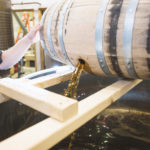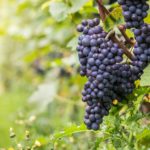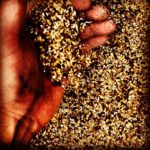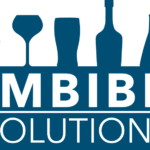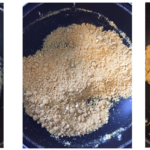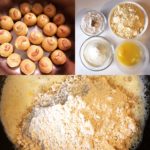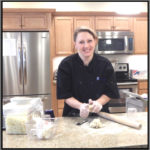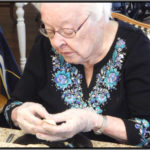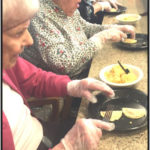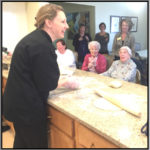Upcoming Events
Gastronomy students!!! You may be interested in these upcoming events. Check 'em out!
Venture Capital Investment for Food

The top 25 U.S. food and beverage companies lost an equivalent of $18 billion in market share between 2009 and 2016.
Venture capitalists are shelling out billions hoping to transform agriculture and scale food ventures that reduce waste and use of synthetic chemicals, conserve resources, accelerate distribution, and improve population health. While venture investment in the food sector seems to be slowing, exits and capital raises continue to abound and gain massive recognition. We're seeing companies like Justin's Peanut Butter sell to industry giant Hormel for $286 Million, local tech businesses like ezCater raise upwards of $70 Million across multiple funding rounds to bring food to corporate office spaces, and industry leaders Campbell Soup, General Mills, Coca-Cola, PepsiCo and others establishing VC funds to acquire entrepreneurial brands that meet Millennials’ demand for high-quality products.
The food movement is here, it's not slowing down, and startups are launching locally and globally signaling a certain shift in how our planet eats.
Join Branchfood as we bring together food venture investors across the food and foodtech industry to discuss financing food businesses, opportunities for innovation in food, market trends, and how to launch and grow a successful food business. At this event you'll get to connect with food industry mentors, advisors, investors, and more, and sample awesome food products too!
Event to be held at the following time, date, and location:
Thursday, April 6, 2017 from 6:00 PM to 8:30 PM (EDT)
Branchfood
50 Milk Street
Floor 20
Boston, MA 02109
The Future of Food and Nutrition Graduate Student Research Conference, hosted annually by the Friedman School of Nutrition Science and Policy, provides a unique venue for graduate students to present original research related to food and nutrition. Historically, more than 200 attendees from over 30 different institutions have come together each year to hear students present research from diverse fields ranging from anthropology to nutritional epidemiology.
As a presenter or attendee, you will gain valuable professional experience presenting and/or discussing novel, multidisciplinary research. The conference also provides a great opportunity for networking with fellow students and future colleagues – the next generations of leaders in the field.
Registration for the 10th annual conference to be held on April 8th, 2017 is open now! Visit our registration page for more details. We hope to see you on April 8th.
The BU Gastronomy Students Association has a few upcoming events! On Thursday April 6th from 7-10pm they will be meeting at the BU Pub on campus to share a few drinks before the BU Pub closes for renovations. This will be the first event of 2017 and a chance to meet new members!
The second event will be starting the BU Gastronomy Students Association Test Kitchen. On Sunday May 7th members and prospective members will meet at 3pm and test out a recipe or two together. Recipes are still being debated and open to suggestions! Some ideas are home-made gummy bears or spring asparagus tart, or maybe both. If there’s a recipe you’ve always wanted to try just let them know. Please contact us for specific location details.
Lastly, some of the members will be traveling to NYC on May 12th to attend the NYC Food Book Fair and eating at Ivan Ramen that Saturday. If anyone plans on also being in New York, or interested in traveling to NY with the BU Gastronomy Student Association for the event or dinner, please reach out to gastrmla@bu.edu.
Link to learn more about the Food Book Fair: http://www.foodbookfair.com/
If you’re interested in joining the Gastronomy Students Association but can’t make the first few events, don’t worry, we’ll have plenty more cooking, eating and socializing going on over the summer!
WEDNESDAY, APRIL 19, 7-9PM
WGBH STUDIOS, BRIGHTON, MA
Do you have an interest in science as well as a passion for the food and beverage industry? Then you are not going to want to miss this event.
Join us at WGBH Studios on Wednesday, April 19 at 7pm, and experience how Boston is influencing "edible science." Edible wrappers, liquid nitrogen-based ice cream, grasshoppers as a form of protein and much more await you. Not only will you get to taste these scientific treats, but you will also hear the innovators speak about how these products came to be and what it means for our bodies now and in the future.
Get your tickets now because this event is sure to sell out.
You must be 21+ to attend this event. Please bring a valid form of identification.
This is not a seated event.
Alumni Spotlight: Chris Maggiolo
Alcohol is an ancient food. It is a social lubricant. It is a component of ritual, of art, of dream-making. It is powerfully charged and, yet, so completely misunderstood in American culture.
 I moved from Virginia to Boston in September 2011 with these words in mind – words jotted down while taking notes during my freshman seminar in alcohol and culture. I was keen on studying the anthropology of alcohol and the Gastronomy program, I felt, was the perfect tool by which to do so. A few years honing my studies and then I’d apply to a PhD program. Well, the best laid plans…
I moved from Virginia to Boston in September 2011 with these words in mind – words jotted down while taking notes during my freshman seminar in alcohol and culture. I was keen on studying the anthropology of alcohol and the Gastronomy program, I felt, was the perfect tool by which to do so. A few years honing my studies and then I’d apply to a PhD program. Well, the best laid plans…
To say I concentrated in alcohol studies would be putting it lightly. It was everything I did. I worked full time managing the Modern Homebrew Emporium in Cambridge, leveraging contacts and a vast network of brewers to find interview participants and volunteer opportunities. I took a second job in the summer managing relationships between wholesalers and retailers. I conducted every project and wrote every paper (save for one, I think) on the subject of craft brewing and alcohol culture. And when I wasn’t working or hunkered down over a book for school, I volunteered with breweries and, later, distilleries. I believed in the holistic approach fostered by liberal arts studies, and I tried to engage the industry from all angles.
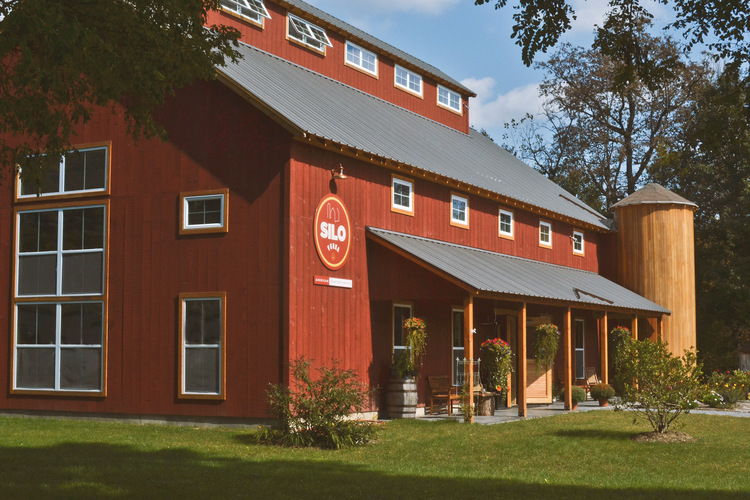 Ultimately, it was the liberal arts approach that landed me my job at SILO Distillery. Craft producers need to be swiss army knives rather than specialists, and the Gastronomy program prepared me well for this. To a degree, I understood marketing and sales, production practices, legislature and regulations. In a pinch I can crunch financials. And if I didn’t know something, I had the tool set to figure it out. I never would have guessed that I would know as much about boiler systems as I do now, but last week I answered a call from an aspiring distiller with a background in chemical engineering and we had a half hour call about our boiler unit. The liberal arts approach is real, and it can be very valuable.
Ultimately, it was the liberal arts approach that landed me my job at SILO Distillery. Craft producers need to be swiss army knives rather than specialists, and the Gastronomy program prepared me well for this. To a degree, I understood marketing and sales, production practices, legislature and regulations. In a pinch I can crunch financials. And if I didn’t know something, I had the tool set to figure it out. I never would have guessed that I would know as much about boiler systems as I do now, but last week I answered a call from an aspiring distiller with a background in chemical engineering and we had a half hour call about our boiler unit. The liberal arts approach is real, and it can be very valuable.
But it can also be too vague, too broad. It’s important to have a goal in mind – something to anchor the Gastronomy net. Focus your intent, and the program will open amazing doors.
I frequently draw on my experiences with the Gastronomy program to fuel SILO’s growth. As a company we focus intently on local and regional agricultural systems. I’ve held meetings with groups of farmers in order to discuss potential crop growth for distilling purposes and to facilitate the collection of our spent grains. Having an understanding of their work and struggles goes a long way to securing these relationships. In conceiving of new products, I consider both modern trends and historic and cultural precedents. For example, amaro is really hot right now in trendy restaurants and cocktail circles. I’ve been working on a fun analog rooted in a mid 17th century cookery book. It’s been a blast and I think it’ll be quite successful.
Just as Gastronomy studies the art and science of food, distilling practices the art and science of spirits. In a craft that is as technical as it is creative, having a liberal arts background is a keystone of success. Sure, work can be stressful at times, but familiarity with the big picture brings everything back into perspective and keeps me energized and excited for what lies ahead.
Gastronomy Summer Courses
Registration for summer term classes begins on Thursday, February 23. Take a look at the offerings from the Gastronomy department.
Summer Term 1 Gastronomy Classes
MET ML 641 Anthropology of Food – with Dr. Karen Metheny
Summer 1 (May 24-June 28), Mondays and Wednesdays, 5:30 to 9 PM
What can food tell us about human culture and social or ganization? Food offers us many opportunities to explore the ways in which humans go about their daily lives from breaking bread at the family table to haggling over the price of meat at the market to worrying about having enough to eat. Food can also tell us about larger social organizations and global interconnections through products like Spam that are traded around the globe and the ways in which a fruit like the tomato transformed the culinary culture of European nations. In this course we consider how the anthropology of food has developed as a subfield of cultural anthropology. We also look at the various methodologies and theoretical frameworks used by anthropologists
ganization? Food offers us many opportunities to explore the ways in which humans go about their daily lives from breaking bread at the family table to haggling over the price of meat at the market to worrying about having enough to eat. Food can also tell us about larger social organizations and global interconnections through products like Spam that are traded around the globe and the ways in which a fruit like the tomato transformed the culinary culture of European nations. In this course we consider how the anthropology of food has developed as a subfield of cultural anthropology. We also look at the various methodologies and theoretical frameworks used by anthropologists
MET ML 673 Food and Film – with Dr. Potter Palmer
Summer 1 (May 23-June 29), Tuesdays and Thursdays, 5:30 to 9 PM
We can all take pleasure in eating good food, but what about watching other people eat or cook food? This course surveys the history of food in film. It pays particular attention to how food and foodways are depicted as expressions of culture, politics, and group or personal identity. We will watch a significant number of films, both fiction and non-fiction, classic and modern. A good portion of class time will also be given to discussing the readings in combination with hands-on, in-depth analysis of the films themselves. 4 cr. Tuition: $3320
MET ML 650 - The Foundation of Beer and Spirits – with Sandy Block
Summer 1 (May 25-June 29), Thursdays, 5:30 to 9 PM
Explores t he great variety of beer styles and spirit categories currently available and the role each plays in our culture. Surveys significant developments in the historical evolution, production, distribution, consumption, and cultural usage of these alcohol
he great variety of beer styles and spirit categories currently available and the role each plays in our culture. Surveys significant developments in the historical evolution, production, distribution, consumption, and cultural usage of these alcohol
beverages in the United States. Includes tastings of beer and spirits to demonstrate examples of the most important categories and classifications. 2 cr. Tuition: $1660; lab fee: $200; total charge: $1860
MET ML 651 Fundamentals of Wine – with William Nesto
Summer 1 (Ten week course: June 5-August 7), Mondays, 6 to 9 PM
Suitable for students without previous knowledge of wine, this introductory survey explores the world of wine through lectures, tastings, and assigned readings. By the end of the course, students will be able to exhibit fundamental knowledge of the principal categories of wine, including major grape varieties, wine styles, and regions; correctly taste and classify wine attributes; understand general principles of food and wine pairing; and comprehend the process of grape growing and winemaking. 2 cr. Tuition: $1660; lab fee: $200; total charge: $1860
MET ML 699 Laboratory in the Culinary Arts: Baking – with Janine Sciarappa
Summer 1 (May 23 – June 28), Tuesdays and Wednesdays, 5:30 to 9:30 PM
Exposes students to a craft-based understanding of the culinary arts from which to better understand how food and cuisine fit into the liberal arts and other disciplines and cultures. Integrates personal experience and theory through discipline by training students in classic and modern techniques and theories of food production, through pastry and baking methods and working efficiently, effectively, and safely. Also introduces students to baking techniques from various cultures and cuisines from around the world. 4 cr. Tuition: $3320; lab fee: $1500; total charge: $4820
Summer Term 2 Gastronomy Classes
MET ML 698 Laboratory in the Culinary Arts: Cooking – with Christine Merlo
Summer 2 (July 5 – August 9), Tuesdays and Wednesdays, 5:30 to 9:30 PM
Exposes students to a craft-based understanding of the culinary arts from which to better understand how food and cuisine fit into the liberal arts and other disciplines and cultures. Integrates personal experience and theory through discipline by training students in classic and modern techniques and theories of food production, through cooking and working efficiently, effectively, and safely. Also introduces students to foods of various cultures and cuisines from around the world. Students are expected to provide their own chef's coat and knives. 4 cr. Tuition: $3320; lab fee: $1500; total charge: $4820

MET ML 704 Special Topic: Survey of Italian Wine – With Bill Nesto
Summer 2 (July 6 – August 10), Thursdays, 5:30 to 9 PM

Topic for summer 2017: Survey of Italian Wine. Provides students with a thorough knowledge of Italian wine. By the end of the course, students will know the history, cultural context, and styles of wine made throughout Italy and will understand issues within the Italian wine industry and the market performance of Italian wines in Italy and in other countries. Regular class tastings illustrate examples of wine types. 2 cr. Tuition: $1660; lab fee: $200; total charge: $1860
MET ML 719 Food Values: Local to Global Food Policy, Practice, and Performance – with Ellen Messer
Summer 2 (July 3-August 9), Mondays and Wednesdays, 5:30 – 9 pm
Reviews various competing and sometimes conflicting frameworks for assessing what are "good" foods. Examines what global, national, state, and local food policies can do to promote the production and consumption of these foods. Teaches how to conceptualize, measure, and assess varying ecological, economic, nutritional, health, cultural, political, and justice claims. Analyzes pathways connecting production and consumption of particular foodstuffs in the U.S. and the world. Emphasizes comparative food systems and food value chains, and the respective institutional roles of science and technology, policy, and advocacy in shaping food supply and demand. 4 cr. Tuition: $3320

MET ML UA 510 Special Topics in Urban Affairs – with Walter Carroll
Summer 2 (July 6 – August 10), Tuesdays and Thursdays, 6 to 9:30 pm
Topic for summer 2017: Feeding the City: Urban Food. Examines historical and contemporary issues involved in providing food to cities and metropolitan areas. Tracing the routes that food takes into the city and the major sources of food, the course looks closely at the accessibility of food, especially in poorer urban neighborhoods. Among topics covered are obesogenic neighborhoods, food deserts, gentrification and foodie culture, public school food and nutrition, attempts to minimize food waste, and immigrants and ethnic foods in the city. The course also considers recent attempts at food production in cities, including urban agriculture, vertical farming, and craft production of food products. After closely looking at the history and current status of food programs, the course concludes with a consideration of urban food policies. 4 cr. Tuition: $2640
Alumni Spotlight: Audrey Reid
 Fun fact: There is such a job as Brewing Scientist. No, not a scientist that has taken up brewing, a scientist that studies beer and works with brewers to craft the perfect libation.
Fun fact: There is such a job as Brewing Scientist. No, not a scientist that has taken up brewing, a scientist that studies beer and works with brewers to craft the perfect libation.
BU Gastronomy alum and self-proclaimed Gastronomical Chemist Audrey Reid started Imbibe Solutions, a Charlottesville, VA based laboratory that works with craft breweries and small wineries, to do just that. She found a need for laboratory testing by breweries and wineries who didn’t have a fully equipped lab of their own, so she opened Imbibe Solutions to fulfill the need and save the businesses from the large investment required to build one.
Breweries and wineries measure a variety of variables throughout their processes. For breweries, quality control testing is about consistency of product from batch to batch, process efficiency, elongation of shelf-life, and elimination of off-flavors. For wineries, QC tests help winemakers understand what their starting product is, monitor fermentation and aging, make adjustments, add preservatives, and prevent microbial contamination. Common lab tests you will likely be familiar with but may not have given much thought to, include: ABV, IBU, residual sugar, gravity, acetic acid, carbonation, and sulfites.
During her time in the Gastronomy program, Audrey relied on both classes and the amazing opportunities that Boston presents to shape her education. She studied national wine policies and flavors produced by yeast in beer at 808 Comm., while learning about fermentation from Boston Ferments, brewing with friends, and picking the brain of an intern at a local distillery. She thought she might do policy work for the wine and beer industry after graduation; never once did she think she would become an entrepreneur. It wasn’t until she moved to Charlottesville and spoke with a brewer about the need for chemists in the industry, that she realized she could do one better than beer policy, she could combine her love for food and science as a beer chemist.
One of the biggest lessons the Gastronomy program taught her, is you have to design your own path. The program certainly doesn’t dictate which classes to take (beyond the core); you take the classes that sound interesting and teach you what you want to know, whether in the program, elsewhere at BU, or at any of the other amazing schools in the city. And as students well know, this is a unique program relatively new to the world, which means you often have to create your own job upon graduation. Find what you want to do and convince the right people that they need someone like you.
For Audrey, that meant starting a laboratory to help brewers and winemakers succeed in their ever-growing industries.
More New Spring ’17 Students
Classes have just begun for students enrolled in the MLA in Gastronomy and Food Studies Graduate Certificate programs this Spring! Here are two more new candidates.
Madoka Sasa was born and raised in Nagano in Japan and received her BA in Social welfare from Tokyo Metropolitan University in Tokyo. After graduating from college she began to work for a newspaper as a staff writer. While working at the company, she transferred from Tokyo to other rural regions where she began to cultivate an interest in food and drink. She realized that talking, tasting and knowing about typical local foods and drinks was always a good way for her to understand the culture and people there, and to make new friends in strange towns. Her network of friends and precious memories in those days are strongly connected with various foods in the area.
Through this program, Madoka wants to learn about relationships among people and food from various points of view. She believes that this is one of the best ways to understand people more deeply, and to understand the needs of the times. She hopes to utilize her education in Gastronomy to improve her skills as a journalist, and to contribute to a society where people can enjoy delicious meals in peace.

Sarit Rubinstein was born and raised in Israel. She has an MBA from Tel-Aviv University and has worked as a business manager and economist for major banks and credit card companies in Israel. She has always been passionate about baking, however, and after completing her Master’s degree she decided to attend a pastry school and several cake decorating workshops. She has since mastered cake decorating using fondant, royal icing, and buttercream, and is now a cake designer and the proud owner of a successful home-based business, “Sweet-Art Cakes”, here in MA.

Growing up in Israel and surrounded by a variety of cultural backgrounds, Sarit has always loved exploring and learning about food-related stories, recipes, and customs. She hopes to use her Gastronomy studies at BU to look further into the relationships between food history and culture. In addition, she desires to learn more about food labeling and nutrition, and the effects of food policies on our lives.
Besan Laddoos Deconstructed: The Science Behind This Indian Sweet
By: Sonia Dovedy
Growing up in an Indian household, I was often handed a precious, round morsel to savor during any holiday, religious festival, or simply as a doting gift from a relative. Known as “laddoo,” which translates to “round ball,” these beloved confections of clarified butter, various flours, sugar, dried fruit, and nuts have always held a sweet place in my heart. For my food science class (MET ML 619), I took on the exciting task of exploring the science behind preparing the laddoo.
Some History
Historically, laddoos were created for their medicinal purposes. Comprised of healthful ingredients such as desi ghee, dates, chickpea flour, nuts and seeds, these sweets were meant to invigorate the weak and nourish individuals. Additionally, they served as a perfect ration for warriors and travelers because of their ease in transportation and long storage life. Then, when the British brought sugar to India, the entire purpose of laddoos dramatically changed. Recipes were re-created with the addition of the addicting sucrose, and laddoos became ubiquitous treats, necessary for every celebratory occasion. Today, laddoos come in all varieties - from traditional besan (chickpea flour) laddoos, to coconut laddoos, date laddoos, and more. Yet their shape remains the same - a small, round ball, in adherence to their namesake.

The Project
Within Indian households, cooking is not a science; recipes come from stories, directions come from instinct, and the perfect flavor comes from experience. Thus, when asking the culinary experts of my mother and grandmother for help on decoding the “science” behind one of my favorite sweets, besan laddoo, I did not receive much clear guidance. For example, when asking how long to cook the besan, my mother replied, “I don’t know? Just cook it until it smells roasted. You will know.” After many attempts and questions, I was able to patch together the following recipe:

The Science: I will now explain the science within each step of the recipe as well as the role that the different ingredients play during the process of making besan laddoo.
The Roasting
The first step is to roast the besan, or finely ground chickpea flour in the ghee. Ghee is essentially butter which has been cooked for a long time, until the milk solids have browned and caramelized. These milk solids of casein, lactose, and whey, are then strained from the mixture, and the resulting product is a clear liquid of pure milk fat with nutty, burnt caramel notes. The use of ghee in the laddoo is important for the following reasons:
- It adds nutty, burnt caramel flavors.
- Its high smoke point of 450F is well suited to fry the other ingredients.
- It helps to preserve laddoos for a long period of time. Laddoos store well for up to two weeks!
When the besan undergoes the Maillard reaction, it takes on golden hues, emits a nutty aroma, and transforms into a rich, savory ingredient, essential for this sweet. During the roasting process, it is imperative to roast the besan on a medium-low flame while stirring continuously. This slow, careful process ensures that each granule of besan is exposed to even heat, providing for an even roasting of the flour; this also prevents the besan from burning and becoming bitter.
The next step is to add the non-fat dry milk powder to the besan/ghee mixture, and roast for five more minutes. The use of non-fat dry milk powder in this recipe adds important depth in flavor; here, the concentrated dose of milk sugar, lactose, facilitates the Maillard reaction even further and imparts a sweet, burnt caramel flavor to the laddoo. It is important to note that the milk powder is added to the mixture towards the very end of the roasting process for a short period of time. Otherwise, the milk solids would burn.
The Flavoring
Once roasting is complete, the mixture is removed the heat and allowed to cool minimally - just enough so that it is able to be handled while adding the rest of the ingredients: confectioner's sugar, cardamom, and a pinch of salt. It is important for the batter to stay warm because sugar and salt are much more soluble in warmer substances than cooler ones, and heat allows for the cardamom spice to release its fragrant oils. There is no concern about over-mixing the batter, because there is no gluten in this recipe.
Regarding sugar, in this recipe, the use of confectioner’s sugar is essential, not only to sweeten this dish, but also to achieve the melt-in-your mouth, creamy consistency that this particular laddoo boasts. Confectioner’s sugar, or granulated sugar that has been ground to a fine powder, contains the same chemical structure as ordinary granulated sugar, sucrose. However, it has a small addition of starch, which helps it to absorb moisture and prevents it from caking. Thus, in this recipe, the confectioner’s variety of sugar is crucial for texture. In addition, cardamom, a familiar spice used in Indian cuisine, provides warming flavor notes to the besan laddoo. When crushed and heated, this seed emits floral, fruity terpene compounds and cineole, an essential oil similar to eucalyptus. Finally, salt (my own personal addition to the recipe), or sodium chloride, intensifies the sweetness and adds a depth in flavor to this dish.
The Formation
The last step of the recipe is to take about two tablespoons of the batter and squeeze it together in your palm a few times in order to form a small round ball. At first, the mixture crumbles, but with firm repetitive motions, it begins to glue together. Here, it is helpful to lightly grease your palms with ghee, as this provides a seal around the laddoo, preventing sticky moisture from entering.

As the laddoos cool, they transform from a soft, crumbly consistency into a firm, solid mass. This change in structure is due to the redistribution of the chemical compounds from the ingredients. For example, as the ghee in the batter cools, it returns to its solid state. In addition, the amylose and amylopectin in the chickpea flour realign in different places around the ghee, producing a thicker, more solid formation. These laddoos can be stored in an airtight container for up to three weeks, making them a suitable travel snack.
The final product of this exploration is a collection of precious confections: dense golden balls, with a crumbly centers that melt into a soft, creamy texture on the tongue. Flavor notes include nutty, roasted, and burnt caramel profiles from the roasting, as well as warm eucalyptus notes from the cardamom. While it is not necessary to know the science behind these round treasures in order to enjoy their sweetness, I would argue that this research adds even more depth to their flavor. Enjoy!
Read more from Sonia at www.bakewithsonia.com and www.cookwithsonia.wordpress.com.
New Students, Spring ’17
Classes have just begun for students enrolled in the MLA in Gastronomy and Food Studies Graduate Certificate programs this Spring! Here are three of the new candidates.
 Sydney Manning, originally from Wisconsin by way of California, was raised on cheese, brats, Kringle, and soul food. She spent junior and senior year of high school in England, where she was exposed to new countries, cultures, and authentic European cuisines. She received her BS in Marketing Communication from Emerson College and ventured into a career in social media marketing for both the food and hospitality industries. While working, Sydney began to develop an interest in cooking and eating that went beyond a night out or writing copy for one of her clients. Suddenly she found herself looking at a dish, longing to learn how to create it on her own, and began documenting every triumph (and occasional failure) on her blog, DaintyDwellings.com.
Sydney Manning, originally from Wisconsin by way of California, was raised on cheese, brats, Kringle, and soul food. She spent junior and senior year of high school in England, where she was exposed to new countries, cultures, and authentic European cuisines. She received her BS in Marketing Communication from Emerson College and ventured into a career in social media marketing for both the food and hospitality industries. While working, Sydney began to develop an interest in cooking and eating that went beyond a night out or writing copy for one of her clients. Suddenly she found herself looking at a dish, longing to learn how to create it on her own, and began documenting every triumph (and occasional failure) on her blog, DaintyDwellings.com.
Gradually, each project she took on got more ambitious until she realized that preparing food (especially for others) had somehow become a part of her very being. It was then that she decided, the world of food was not only where she wanted to spend her personal life, but her professional life as well. With her degree in Gastronomy, Sydney hopes to pursue a career in food media, food activism, restaurant marketing, and/or hospitality.
 Madison Trapkin is a native Atlantan, born out of a love for food. As the daughter of a chef and a restaurant owner, she began her culinary love affair at a very young age. Madison graduated with a BA in Anthropology from the University of Georgia in 2014. Shortly after, she boarded a plane to Italy to work as an au pair for a family of Russian winemakers living in the heart of Tuscany. She returned to the US with a fire in her belly and a mission to make something out of her passion for food.
Madison Trapkin is a native Atlantan, born out of a love for food. As the daughter of a chef and a restaurant owner, she began her culinary love affair at a very young age. Madison graduated with a BA in Anthropology from the University of Georgia in 2014. Shortly after, she boarded a plane to Italy to work as an au pair for a family of Russian winemakers living in the heart of Tuscany. She returned to the US with a fire in her belly and a mission to make something out of her passion for food.
While in college, Madison created Bread & Thread (http://bread-and-thread.com), her food and art blog. She uses mediums such as photography, recipes, poems, and music to give her audience a multi-sensory food experience. The most important events in her life have always seemed to happen around a table – whether it’s her best friend’s teary wedding rehearsal dinner or a plate of fluffy pancakes at her parent’s house on a Sunday morning. Madison is elated at the opportunity to continue her liberal arts education as a part of BU’s Gastronomy program. She’s especially excited about the possibility of combining food and gender studies and hopes to one-day work as a food writer or critic in some capacity.

Sarah Wu grew up in the San Francisco Bay Area, but considers herself a bi-costal girl, as she was born on and frequently visits the East Coast. She earned her B.S. in Journalism at Boston University and has studied Spanish for nine years, including as a minor in college. Sarah can speak hours about Madrid and the Spanish food she deeply misses. She is a travel and food writer and the former managing editor of the Buzz. She also wrote, translated, and edited for Where Madrid, a travel magazine in Spain. After speaking with former Gastronomy students and taking Taste, Culture, and Power: The Global History of Food and Food Writing course at BU, she knew that she wanted to combine her love of writing and travel with global tastes in the Gastronomy program. When she's not writing or editing, you can find her taking photos of food or ballroom dancers, as she is a competitive ballroom dancer herself. She hopes to write for a national magazine in the future or even work as a public relations coordinator for restaurants or food establishments. A less realistic goal for her is to host her own Travel Channel show, but she knows that her fast talking might not be great for television, so she prefers her pen and paper.
Alumni Spotlight: Nina Quirk
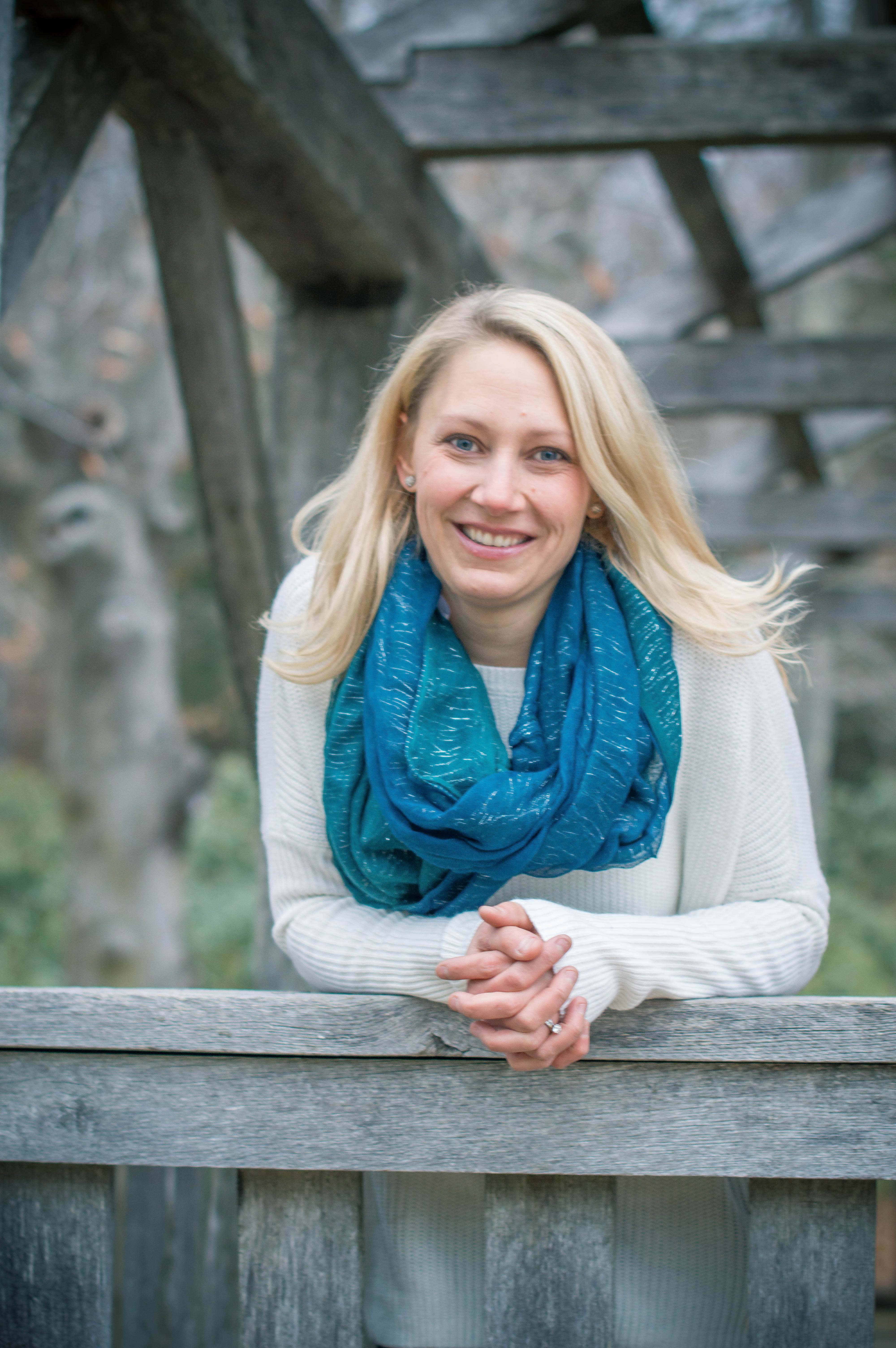 Finding the perfect career path can be a struggle for some Gastronomy graduates. Throughout my time in the program, my friends and I would discuss matters such as balancing hospitality industry schedules with families, low pay and menial incentives, endless hours of kitchen drudgery, and many more unappealing aspects common to a life devoted to food.
Finding the perfect career path can be a struggle for some Gastronomy graduates. Throughout my time in the program, my friends and I would discuss matters such as balancing hospitality industry schedules with families, low pay and menial incentives, endless hours of kitchen drudgery, and many more unappealing aspects common to a life devoted to food.
While pursuing my degree, I worked as a personal chef, specializing in cooking for people with cancer, diabetes, epilepsy and food allergies, using advanced diet therapies to help address those conditions. This offered flexibility, hands-on experience and decent pay, but clients came in waves. I found myself craving the social atmosphere of a kitchen and wondering what foodservice management might be like.
My husband works in elder care, so I conducted various studies with the senior population he served as I worked toward my master’s degree. I researched nursing home and assisted living gardens, taste loss and aging, and Grandmother Cuisine, among other topics. That new interest in senior food systems led me to pursue a career with SALMON Health and Retirement, a housing and healthcare organization in Central Massachusetts.
In June 2015, I took the position of Director of Dining Services for SALMON’s Natick campus. Our building houses 66 residents in assisted living apartments (including memory care), 54 residents in a skilled nursing center, 50 children in the SALMON Early Education Center, and 45 Adult Day Health Center clients. All in all, the kitchen I manage feeds 200 people daily.
When I arrived on the scene, there were obstacles to overcome. In my first few weeks on the job, we went from using an outside contractor to being a Salmon-managed kitchen. As the first manager of this new operation, I saw boundless opportunities to create a wonderful, gastronomy-friendly system for a superior dining program. I started by teaching my culinary team to cook menu items from scratch, saying goodbye to the frozen and canned past they knew. I hired a talented pastry chef to elevate the baked goods and treats on campus. Now, most of our food items are homemade, including salad dressings, breads, pizza and desserts. Our residents grew enthusiastic and happier with the new dining services over time, and the positive impact good food had on the whole community became obvious.
This acceptance allowed me to host a variety of programs to engage our residents around food:
- We formed a traveling group, visiting foodie destinations like the Boston Public Market or the Boston Public Library for afternoon tea, and various local farms.
- We established a Solarium for residents to grow plants—both edible and flowering. The space is solely dedicated to the garden craft; it’s also been widely accepted by our residents with dementia.
- Each month, we host interactive cooking demonstrations where residents handcraft ethnic specialties. So far, we’ve made ravioli, pierogi, tomato tarts, pickles, jams, and much more.
- We partnered with a group called Brain Wellness to conduct a three-part seminar on brain-healthy eating where I cooked the foods and served them to a full house.
- Our most recent endeavor is a program called Heritage Cuisine. We’ll gather recipes and food traditions from our residents’ families to create a varied and unique campus cuisine.
We have a lot of fun at work building community around food, and I feel very fortunate. This position has provided me with the perfect application of the Gastronomy Program: food infused with meaning.
Article: Do Puerto Ricans know the origin of their typical food?
By Michelle Estades
This article was originally published in December 2014 in Diálogo, the newspaper of the University of Puerto Rico.
Puerto Ricans, without a doubt, are passionate about eating. They are willing to try different foods, but when asked what their favorite dish is; rice, beans and roasted pork have the lead. According to Cruz Miguel Ortiz Cuadra, a History Professor at the University of Puerto Rico in Humacao (UPRH), this is demonstrated at the start of each school year when he asks their students "what is your favorite dish?"
"Rice, beans and stewed chicken," one responds, while another writes "Greek rice and breast with sauce." There are some who indicate that they prefer "pasta with shrimp", to which Ortiz Cuadra calls the phenomenon Macaroni and Grill. But there are students who always say that their favorite food contains rice: "rice, stewed beans and chicken" or "white rice with fried spam". They also mention tubers with cod or other dishes with mofongo (mashed plantain).
"There is no doubt that domestic food is the favorite of people," said Ortiz Cuadra. But do Puerto Ricans know the origin of their gastronomy?
The professor of the UPR in Humacao, who has specialized in capturing the history of Puerto Rican food, said that the Taino Indians and the Spaniards, as well as the Africans, influenced the gastronomy of the Island.
"Our food is a mongrel and mulatto food. It is a combination of food known to the Indians, food that came in the Spanish conquest, the result of slave trade and the desires for survival of Africans who came as slaves," Ortiz Cuadra said.
Among the foods that the Puerto Rican cuisine adopted from the Tainos are: cassava, yautía, maize, beans, batatas, pepper, sweet and spicy chilli and recao. From the Spanish conquest were acquired foods such as pork, beef, rice, oil and various enriching flavors such as oregano, cumin, basil and almost all herbs used to make sofrito. While directly from Africa came the famous plantain, banana, yam, okra and beans, but also came a starter food in Puerto Rican cuisine, the gandules (pigeon peas).
Ortiz Cuadra clarified that Puerto Rican gastronomy was shaped as the result of a globalization after discovery. "After Columbus discovered America, there was something going on and on and food was distributed throughout the rest of the world. This was not from one day to another, this was something of centuries. This ours has to do with that globalization and with the transfer of food by the result of the movement of the populations,” he pointed.
Although Puerto Rican cuisine was created as a result of colonial and imperial projects of Spain, it has had the ability to adapt dishes from other parts of the world and turn them into something local. For example, Ortiz Cuadra mentioned arroz con dulce. This came from Spain where it is known as rice with milk. When they brought it to Puerto Rico they did not have the milk, but they did have coconut. Then they modified it to their realities and developed arroz con dulce.
"If you come to see, our food is the result of globalization, colonial projects and imperial projects. If Spain does not have as mission to create an expansion in America to develop Christianity and mercantile companies, these foods do not arrive. Same with the slavers, if they do not have the interest of bringing slaves to America, they do not get these foods," he mentioned.
Rice with pigeon peas
In his book “Puerto Rico in the pot, are we still what we eat?,” Ortiz Cuadra highlight that although the rice was brought to Puerto Rico by the Spaniards this began to be cultivated by the Africans. Not by the Taino Indians because they did not know the food and not by the Spaniards because they "used it more as food than as a seed."
The author indicates that when the Africans arrived to Puerto Rico they had to immediately relate to the agriculture of the Island and sowed and produced crops that they knew for their subsistence, including rice.
However, the rice culture of Puerto Rico began when they saw the potential for dissemination and the effective techniques to grow it by the 16th century. With this also came the different ways of cooking it. One of the techniques of cooking rice was incorporating other elements such as legumes or meats, which became known as compound rice.
To cook the compound rice, they started making the sofrito that at that time was simply the part of adding spices and other condiments to give it more flavor. But, why did Puerto Ricans start making rice with pigeon peas like the typical rice made up of parties?
According to Ortiz Cuadra, compound rice were specifically made on special occasions or parties because it was a way of cooking two different foods and "increased the volume of a food service." Rice was also combined with ingredients that were available in seasons. This is the case of the pigeon peas.
"The absence of the plate [rice with pigeon peas] at Christmas Eve, New Year and Three Kings dinners, today would be considered a true lack of Christmas gastronomic tradition. But what is not known is that at the time when the kitchen was not modeled by the agro-industry, but by the agricultural cycles, the collection of the gandul (pigeon peas) coincided in the calendar with the Easter parties," explained the author.
Recipe of traditional rice with pigeon peas
Since there is no Christmas in Puerto Rico and there are no parties without typical food, here we present a recipe of traditional rice with pigeon peas taken from the Sazón Boricua food blog.
Ingredients:
2 cups long grain rice or the grain of your choice
2 cans of green pigeons or 2 pounds of pigeons, softened (not drained)
3 tablespoons of annatto oil or canola oil
½ cup of diced ham
1 cup of pork, optional
3 tablespoons of sofrito
¼ cup of olives
2 cups of water or less depending on the type of rice grain you use
Salt and pepper to taste
1 red bell pepper
Cilantro or coriander to taste
Seasoning powder with cilantro and annatto, optional
Process:
Saute the pork for about seven minutes or until they turn pink, add the ham and knead it. Add the sofrito, olives, cilantro, seasoning, the pigeon peas and liquids, then cover the pot and cook for a few minutes. Stir the rice, taste, let it cook uncovered until the liquid begins to evaporate, stir and mix well. Then add the red bell pepper cut into strips and do not move the rice any more, cover it.
Note: If you wish to add a touch to the rice with pigeon peas, you can grate ½ green banana and add it to the casserole before adding the rice. You can also place a clean banana leaf on the rice after it has been moved. But first clean it and pass it over the burner or a hot surface to seal it.
Anthropology of Food: Food Maps
When you go out to dinner with friends and family do you imagine the connections that are being made between the people, space, and the food? Well, students of the Fall '16 Anthropology of Food course have mapped it out for you!
Below you will find student interpretations of the relationships that are created when groups and communities share food.
[office src="https://onedrive.live.com/embed?cid=DF65B404E6176AD6&resid=DF65B404E6176AD6%21412&authkey=AJGX1f0ee7jib3g&em=2" width="720" height="400"]
"My project began out of a curiosity for how the Mexican tamale became a favored delicacy in the American South, particularly amongst African Americans. The original plan was to identify regional tamale distinctions, tracing the food out of the Mississippi Delta. Instead the tamale tells of a greater story of diaspora and asks for us to rethink cultural exchange in the Americas by using the Gulf region as the epicenter." -Dani Willcutt
-Giselle Kennedy Lord
"What I found so fascinating about this project is that each one of us in class followed the same guidelines and came up with entirely different interpretations. I began with the location I wanted to focus on—Tatte in Brookline—and then the rest just came as I conducted my observations. I wanted to look into why it was that I so often left Tatte feeling unsatisfied in some way. I decided to map the space and in doing so I realized that on a spacial and emotional level the cafe was clogged and uncomfortable leading to negative emotions in the space. The cafe's layout is largely responsible for this along with other factors that I mention in my paper." -Rachel DeSimone

Halloween Food Map
[office src="https://onedrive.live.com/embed?cid=DF65B404E6176AD6&resid=DF65B404E6176AD6%21416&authkey=AAIhnR9LOYPBafw&em=2" width="720" height="405"]"These maps reflect the food shopping patterns of a 4-person household over a one month period of time. The maps were developed using actual food expenses in association with the physical address of purchase. The final results delineate location, category, cost and frequency of food buying behavior." -Andrew Philips
[office src="https://onedrive.live.com/embed?cid=DF65B404E6176AD6&resid=DF65B404E6176AD6%21417&authkey=AITdWAy0f1p5998&em=2" width="720" height="400"]





